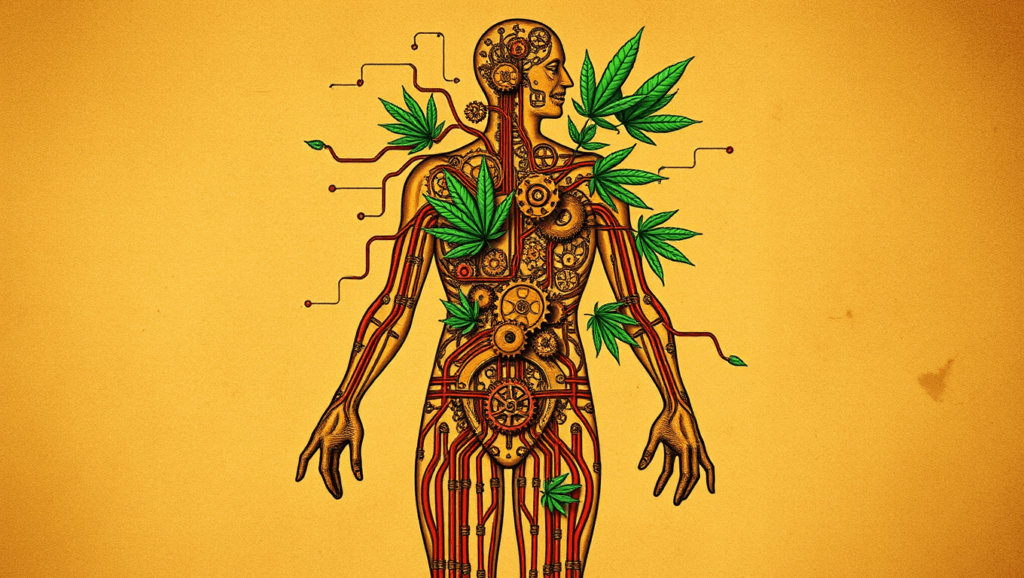Surprising Truth: Does Weed Make You Lose Weight?

Introduction
Within the last couple of years, the association between cannabis consumption and managing weight has been a subject of growing interest and test. With so many other states now legalising the drug for medical and recreational purposes, researchers and health experts are increasingly exploring its impact on weight (amongst many things!). This article will examine the question: So does smoking weed make you lose weight? In this review, we will discuss the science, explore possible mechanisms of action and provide a nuanced perspective on this complicated subject matter.
Incongruity of Cannabis and Weight Loss
What is Behind the Munchies Reason
So, when people think about cannabis and its influence on appetite, most will point to the notorious munchies. As a common side effect associated with marijuana use, it often leads to greater consumption of energy-dense, palatable foods. So one would think that this would contribute to weight gain, not loss. But the association between cannabis use and body weight is more complex than it seems at first.
Population studies have been used in surprising ways.
But in what might be an unexpected finding, several studies involving large populations show that cannabis use links to a lower weight. For instance:
- One study in the American Journal of Epidemiology found lower rates of obesity among cannabis users compared to non-users.
- And yet another study published in the journal Mental Health Policy and Economics found that frequent cannabis users had a significantly lower body mass index (BMI) than individuals who have never used cannabis.
- Researchers have sought to explain the mechanisms by which this apparent paradox of high body weight and use of cannabis exists.
Potential Mechanisms: How cannabis may affect body weight

The Metabolic Role of the Endocannabinoid System
When it comes to how cannabis may impact weight, it is important to look at the endocannabinoid system (ECS). This system of interrelated cell-signaling activity influence multiple physiological processes, including appetite and metabolism, and regulates energy balance.
Cannabinoids from cannabis affect the ECS
Here are the two best-known cannabinoids:
- Δ-9-tetrahydrocannabinol (THC): The principal psychoactive constituent of cannabis
- Cannabidiol: The other compound, one that has no high potential with therapeutic effects.
Such cannabinoids can affect the ECS, possibly changing metabolism and energy expenditure.
The Biphasic Nature of THC
The primary psychoactive constituent of cannabis, THC has also been noted to have biphasic appetite effects. This means that:
- THC can increase appetite (the “munchies”), at low doses
- At higher doses or with chronic use, THC may even decrease appetite.
This biphasic effect might serve as a partial explanation for why some cannabis users have lower body weight despite the fact that appetite is increased in the short term.
The Effects of Insulin Sensitivity
Cannabis use was associated with better insulin sensitivity, according to some studies. Insulin is a hormone that helps control blood sugar levels it is essential for the metabolism process. Enhanced insulin sensitivity may indeed result in improved metabolic health and body weight.
Now let’s move on to THE ABILITY TO DISSIPATE STRESS AND CONTROL CORTISOL.
Chronic stress and increased cortisol levels are linked with gain weight, especially abdominal fat. Some people use cannabis as stress and anxiety relief. Cannabis use could affect weight in part by lowering cortical levels, and it might also reduce stress, which have an indirect impact on weight control.
How Different Strains of Cannabis Play a Role
The bottom line is that not all cannabis is created equal. As such, distinct cannabis strains contain disparate concentrations of cannabinoids and other molecules – resulting in different impacts on appetite and metabolic processes.
Indica vs. Sativa
Indica strains are not only the opposite of sativa but they also provide more of a relaxing effect and an increased appetite.
Sativa strains are often associated with higher energy and affect appetite less.
CBD-dominant Strains
CBD-rich, THC-limited strains may be useful to some for loose weight due to their hidden weight loss powers with out the highsymptoms that include THC. And while more research is needed, some studies suggest that CBD may help the following:
- The ability to promote browning of fat cells, which may lead to a higher metabolism
- Reduce appetite
- Reduce inflammation often found in obesity
Risks & Caveats
Many studies have been done that report cannabis users weigh less than non-users—but that work is not unproblematic. Like all forms of drug use, cannabis can be risky and may have side effects:
Respiratory Health
Just as smoking tobacco, cannabis smoke contains harmful compounds that damage the lungs. This is an important thing to consider when it comes to health and wellness.
Mental Health
For some people, especially those at risk of developing mental illness, the cannabis use has been associated to the higher risk of mental health problem.
Addiction Potential
Although it is not viewed as more addictive than a lot of other drugs, cannabis does have a risk of developing dependence issues among routine users.
Medications Interference
It is important to remember that cannabis interacts with multiple medications, and can change how effective they are or lead to side effects.
Why We Need An Integrated Method of Controlling Weight

One last and important point to remember now — cannabis should never be considered as a weight loss aid. Managing weight effectively requires a multifaceted approach that includes:
- A balanced, nutritious diet
- Regular physical activity
- Adequate sleep
- Stress management
- Supervision by a physician as appropriate
The implication is that weight control is affected to a much higher degree by these factors than it would be through the consumption of cannabis.
Limitations of Existing Research and Directions for Future Study
Although the link between cannabis use and reduced body mass is interesting, researchers caution that most of the existing evidence is observational. It holds that a relationship has been found, but does not prove causation.
Future Directions We anticipate:
- Randomised controlled trials testing human cannabis effects on weight and metabolic parameters
Works examining long-term cannabis exposure on body composition. - Researching specific cannabinoids for possible therapy in the treatment of metabolic disease
Conclusion
Q: Does smoking weed make you slimmer?
There is not a straightforward yes or no answer to this. Although some research indicates a contradiction between cannabis use and a lower body weight, the nature of the association is poorly understood.
Remember, there are benefits but that also means risks as well. Cannabis has adverse effects. Weight management should chiefly be rooted in evidence-based lifestyle strategies which is daily habits including sufficient exercise and a healthy diet.
Although many people choose to try cannabis for every health-related thing imaginable, including weight management, it is advisable that you speak with a healthcare professional before trying any substance. They could provide targeted recommendations appropriate to your specific health status and needs.
Ongoing research will hopefully help clarify the effects of cannabis on our metabolism and body weight. In the meantime these things should be addressed with an open mind, some critical thinking and a little attention to health overall.
Keep in mind that no matter how much supplements you take or the right diet to lose weight, a healthy lifestyle is the most important thing! The relationship between cannabis and weight is certainly interesting, but this does not imply that it is a miracle answer for reducing weight.
Read this article for more information OVYVO.COM


